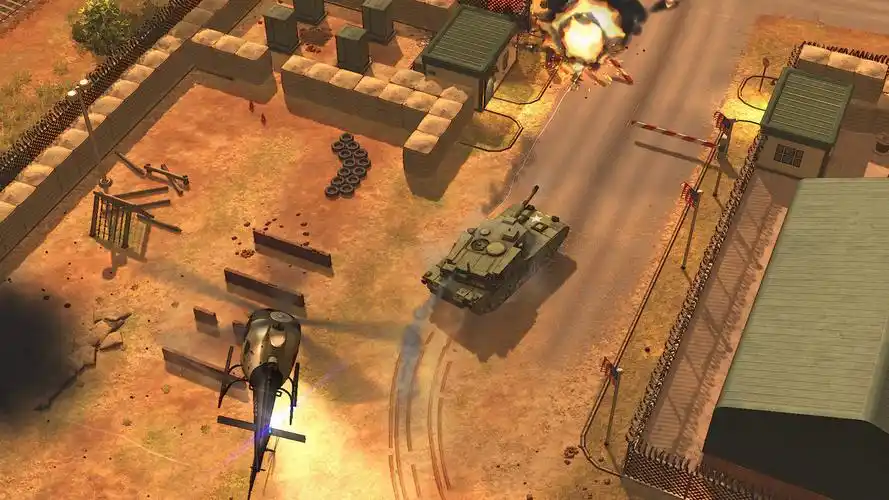Title: Inside the Virtual Courtroom: How the 'Decide Missions' Update Transforms Judge Simulator VR
The intersection of law, ethics, and technology has always been a fertile ground for innovation, and Judge Simulator VR has been at the forefront of this exploration since its inception. By placing players in the role of a judge within a fully immersive virtual reality environment, the game challenges them to weigh evidence, interpret the law, and deliver verdicts that shape virtual lives and communities. Its latest expansion, the "Decide Missions" update, is not merely an addition of new content; it is a fundamental evolution of the game’s core philosophy, transforming it from a series of isolated courtroom dramas into a profound narrative experience with lasting consequences.
Beyond the Gavel: The Philosophy of "Decide Missions"
Prior to this update, Judge Simulator VR excelled at presenting individual cases. Players would hear arguments, review evidence logs, and render a judgment, after which the case would be neatly filed away. The "Decide Missions" update shatters this episodic structure. It introduces a new overarching framework where your decisions are no longer siloed. Instead, they become threads in a larger, dynamic tapestry—a "mission" or a narrative arc that spans multiple cases, sessions, and even in-game years.
The central premise is that justice is not a singular event but a continuous process. A verdict you deliver in a case today might trigger a series of events that resurface in your courtroom months later. This creates a powerful sense of responsibility that far exceeds the initial novelty of wearing the virtual robe. You are no longer just a arbiter of the law; you are a shaper of a digital society.
Key Features of the Update: A Living, Breathing Legal World
1. Persistent Narrative Arcs: The update introduces long-form storylines. For example, an early mission might involve adjudicating a dispute between a powerful corporation, OmniCorp, and a small residential community alleging environmental damage. Your initial ruling—perhaps a simple injunction or a fine—is just the first chapter. Several gameplay sessions later, you might preside over a wrongful termination case of a whistleblower from that same company, or a class-action lawsuit from citizens with newfound health problems. Characters you encountered briefly in one case become recurring figures, their fates directly tied to your past judgments.
2. Dynamic World State: A sophisticated new algorithm works in the background, tracking your rulings and their societal impact. Your decisions influence the game's world state, affecting variables like:
- Public Trust: A string of controversial verdicts may lead to protesters outside the courthouse or biased jury pools.
- Economic Stability: Consistently ruling in favor of big business might boost the in-game economy's metrics but increase inequality-based crimes.
- Legal Precedent: Your rulings on unique cases can be cited by attorneys in future similar trials, forcing you to either adhere to your own logic or consciously overturn your own "established precedent."
3. Moral Complexity and "No Win" Scenarios: "Decide Missions" deliberately ventures into grey areas. The update is filled with cases where there is no clear "right" answer. You might have to choose between upholding a strict, literal interpretation of the law that leads to an unjust outcome, or employing judicial activism that sets a potentially dangerous legal precedent. One mission might force you to decide between granting custody to a financially stable but emotionally distant relative or a loving but impoverished parent, with follow-up missions showing the long-term outcome of your choice on the child's life.
4. New Gameplay Mechanics:
- The Journal: A new in-game tool allows players to take notes and tag connections between cases, people, and corporations. This is vital for keeping track of the complex, interweaving narratives.
- The Aftermath Report: At the end of a narrative arc, players receive a detailed report summarizing the long-term consequences of their key decisions, providing a sobering and often poignant conclusion to each mission.
The Impact on the Player Experience
The "Decide Missions" update fundamentally changes the player's emotional engagement. The weight of the gavel feels heavier. The temptation to quickly render a verdict to move to the next case is replaced by careful deliberation, as players understand the ripple effects of their choices. It fosters a deeper level of critical thinking, moving beyond "What does the law say?" to "What is the right thing to do, and what will this action set in motion?"

This transforms Judge Simulator VR from a clever puzzle game into a powerful empathy engine. It’s one thing to rule on a case about housing eviction; it’s another to later see that same defendant, whose eviction you allowed, now before you on a charge of desperation-driven theft. The update masterfully creates these poignant, self-reflective moments.
Conclusion: Redefining the Simulator Genre
The "Decide Missions" update is a landmark achievement for Judge Simulator VR and for the serious games genre as a whole. It demonstrates that video games can be more than entertainment; they can be sophisticated platforms for exploring complex systems, ethics, and human narratives. By weaving individual cases into a persistent, reactive world, the developers have created a truly unique and thought-provoking experience. It’s no longer just a simulator—it’s a dynamic story about power, responsibility, and the endless quest for justice, where you are both the author and the protagonist. This update doesn't just add more content; it adds more soul.


















